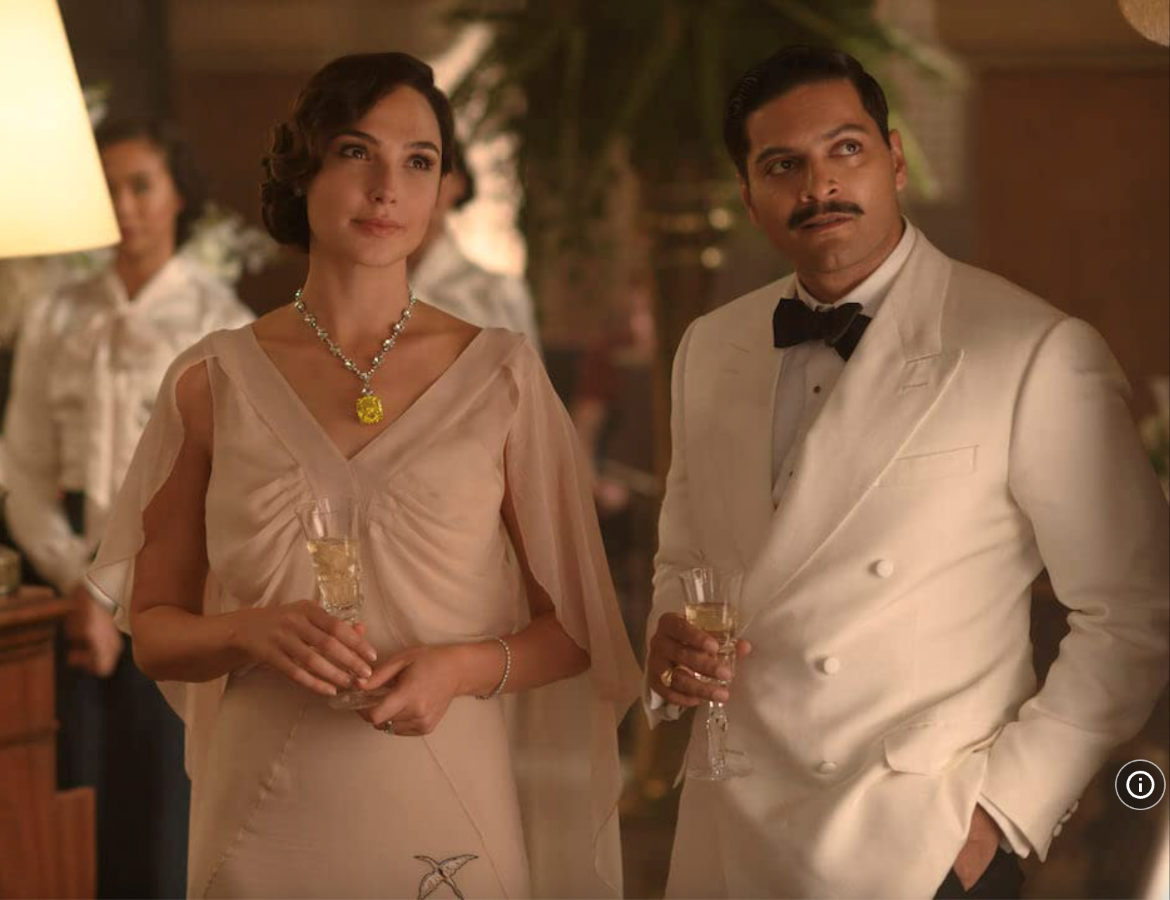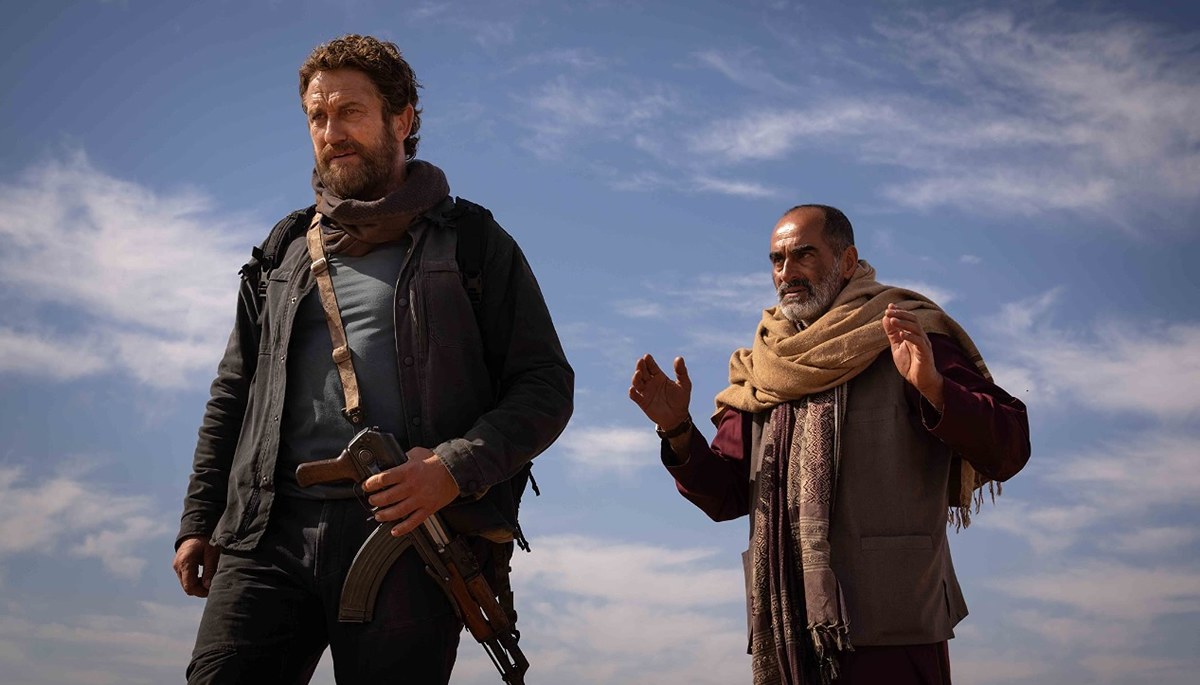DUBAI: It’s funny how life works out. Decades ago, Indian actor Ali Fazal was just a boy spending every summer with his Muslim family in Saudi Arabia, idly dreaming that one day he might make a Hollywood movie in some far-off place. Little did he know that one day he would have a lead role in a major Hollywood blockbuster filmed in the same country that helped raise him, the first international film to be shot in Saudi Arabia’s historic AlUla region: “Kandahar,” starring modern action icon Gerard Butler.
“It was such a pleasant surprise. I never thought I’d be shooting a movie in Saudi Arabia, where I spent such a large part of my childhood. Filming anything in the Kingdom was something unheard of for so long, but it’s beautiful how times change,” Fazal tells Arab News.
“It was one of the most welcoming experiences of my career. Saudis are such a warm people — that I knew — but I was shocked when I landed. I thought I knew this country, but I’d never seen anywhere like AlUla in my life. It’s such a stunning, exotic place, and it was such a joy to call it home for those three months,” he continues.
Fazal felt at home in more ways than one. He’s become the heir apparent to the late Irrfan Khan’s throne as the best crossover Hollywood-Bollywood actor working today. After standout performances in “Furious 7,” “Victoria & Abdul,” “Death on the Nile” and Amazon’s acclaimed ongoing action series “Mirzapur,” thriving on a set full of actors and crew from across the world has become his trademark.

That doesn’t mean, however, that his experience on “Kandahar” didn’t teach him a lot. While he’s used to hands-on combat sequences in “Mirzapur,” working with the same team behind Butler’s films “Angel Has Fallen” and “Greenland” brought things to a different level. To match the experience of everyone else around him, Fazal had to put in the work.
“I ended up landing in AlUla 25 days before the rest of the cast, just so I could learn how to ride a motorcycle in this completely different setting than anything I’ve worked in before. Most of the film I’m chasing Gerry Butler, and though I knew how to ride a bike, riding a bike in the desert is a whole new game,” says Fazal.
While Fazal and Butler are fierce rivals on screen, off it the two shared every meal at AlUla’s Banyan Tree resort, with Butler’s playful spirit creating a tight bond between each of the cast members that continues until today.
“(Butler) just immediately brings you into the fold. He could easily just come in, do his job and go, but he made a point to champion all of us, and that takes a lot of humility and integrity. He would come up to me every day and say, ‘I saw your rushes, and they’re good but I think we can take it in a different direction.’ He always had great notes. He made the film better, and he made me better,” says Fazal.
“We had this tight-knit little community by night, and by day I think the people of AlUla thought there were earthquakes coming through, because of the hardcore action mayhem we were creating,” Fazal continues.
Working on huge international projects has many benefits. Every time Fazal works with someone like Gerard Butler, Judi Dench, Stephen Frears or Kenneth Branagh, he takes away personal lessons on how he can be a better actor and a better person, and sees what it takes to reach the pinnacle of his chosen art.
“I keep thinking back to one moment with Branagh. It was the night before the Oscar nominations were to be announced, and we were all at the British Museum after the premiere of “Death on the Nile” — sitting back and celebrating — but he was sitting in the corner writing his next stage play. That’s diligence. He puts the time in. The next morning, he was nominated for seven Oscars,” says Fazal.

Thinking about those moments, he confesses, also has made it harder and harder to accept offers for projects that don’t come with that same substance and commitment. As a result, he’s gotten a lot more discerning, and a lot more wary of the limelight of Bollywood, though he knows he’s holding himself back from becoming the kind of celebrity some of his colleagues have become.
“I run away from the vanity that has kept us in a bubble in Bollywood. I don’t judge the people — it’s the system itself. Indian film can be so much more, and the rest of India is showing that now. If you go down south, we have some of the best films in the world coming out of Malayalam cinema and Tamil cinema, and both the Oscars and Cannes, for example, are taking notice,” Fazal adds.
Fazal sees Saudi Arabia pushing itself further, sees artists like Branagh and Butler pushing themselves further, and only wants to surround himself with people, and operate in places, that do the same.
“I just don’t want to do mediocre stuff. If the economics of our respective industries is keeping us apart, that doesn’t mean our sensibilities should suddenly dumb down,” says Fazal. “Everything is in competition with everything else right now, anyways. If you’re on a streaming platform, your project is sitting next to an Oscar winner and some groundbreaking new Polish show and you’re only a click away from rejection. You can’t cheat and get away with mediocrity. You have to really get to the truth of things — the painstaking, emotionally draining truth — or people across the world will just ignore it.”
Fazal wants to step up his own game, but he also wants to identify and raise awareness of the types of artists and performers who are putting in the work but not yet receiving recognition. After all, while the great Irrfan Khan was able to find massive success in both India and Hollywood before his death, he spent decades not getting the respect he deserved.
“I want to champion people, because nobody champions artists like us. The same people who are now writing books about Irrfan spent years disregarding him,” he says. “We need people to support great artists not when the rest of the world discovers their talent, but now.”
Thankfully, the recognition that took Khan decades to find is coming to Fazal more easily. True to his word, his next projects fit the mold of what he yearns for, first with the Netflix original film “Khufiya,” from renowned filmmaker Vishal Bhardwaj, and then a starring role in Academy Award winning director Bill Guttentag’s film “Afghan Dreamers,” the true story of Afghanistan’s all-girls robotics team.
“I want to be uncomfortable. I want to feel something I’ve never felt before. Great vision pushes you places you have never been, and then something new comes out,” he says. “That’s what I love. That’s where I find my greatest joy.”
